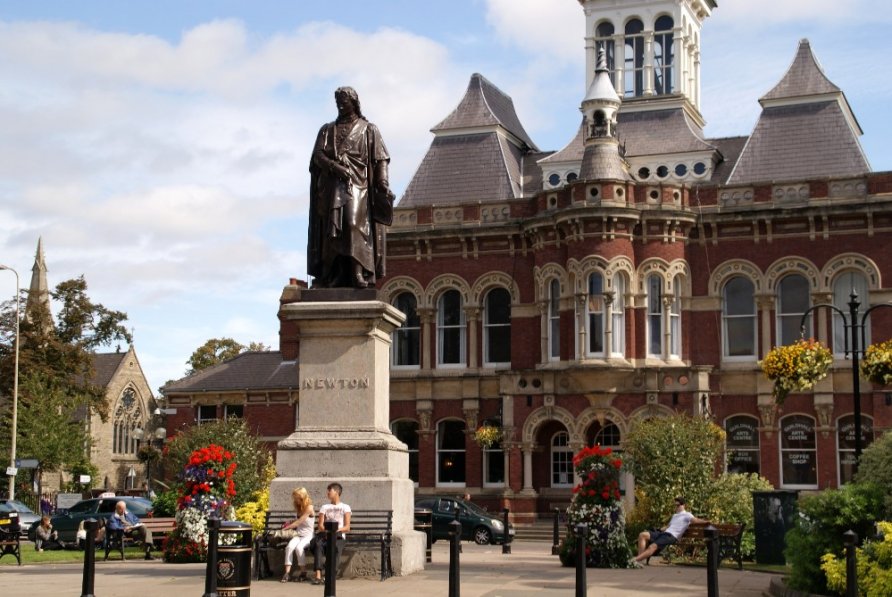Isaac Newton, one of the most influential scientists in history, had significant links to the area around Grantham, Lincolnshire, particularly through his birthplace and early years. Newton was born on December 25, 1642, in Woolsthorpe-by-Colsterworth, a small village near Grantham. While he was not directly born in Grantham, the village is situated within close proximity, and Newton’s early life in the rural surroundings of Woolsthorpe undoubtedly shaped his formative years.
Newton spent his childhood at Woolsthorpe Manor, his family’s farmhouse. The serene countryside setting provided Newton with ample opportunities for observation and contemplation, laying the groundwork for his future scientific endeavors. Legend has it that it was during this time that Newton observed an apple falling from a tree, a moment that sparked his curiosity about the forces of nature and ultimately led to his formulation of the theory of gravity.
Despite his rural upbringing, Newton’s intellectual prowess was evident from an early age. He attended the King’s School in Grantham, where he received a solid foundation in Latin, Greek, and the classics. While at school, Newton’s exceptional abilities in mathematics and science began to emerge, setting him on a path towards academic excellence.
After completing his education in Grantham, Newton went on to study at the University of Cambridge, where he made groundbreaking discoveries in mathematics, optics, and physics. His work on calculus, optics (including the invention of the reflecting telescope), and the laws of motion and universal gravitation revolutionized our understanding of the natural world and laid the foundation for modern science.
Despite his later achievements and international renown, Newton’s early years in the vicinity of Grantham remained formative and significant. His connection to the area serves as a reminder of the role that rural communities and local education can play in nurturing the talents of extraordinary individuals.
Today, Woolsthorpe Manor, Newton’s birthplace and childhood home, is preserved as a museum by the National Trust. Visitors can explore the farmhouse and its surroundings, gaining insight into the life and times of one of history’s greatest scientists. Newton’s links to Grantham are commemorated through various plaques, markers, and educational initiatives, ensuring that his legacy continues to inspire future generations in the region and beyond.
